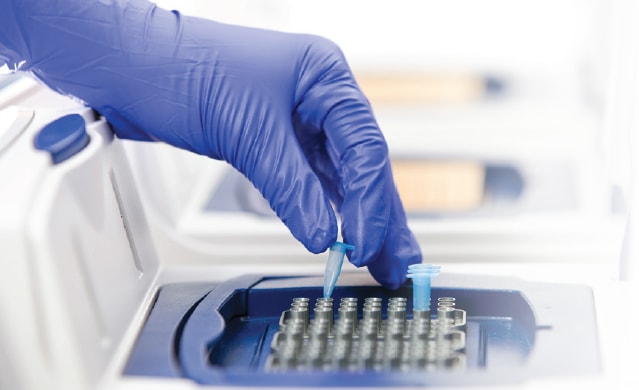The Role of the Division of Laboratory Systems (DLS) in Laboratory Preparedness and Response

The DLS mission is to strengthen the nation’s clinical and public health laboratory system by continually improving quality and safety, informatics and data science, and workforce competency. The 330,000 Clinical Laboratory Improvement Amendments (CLIA) certified laboratories in the United States are on the frontline of patient care and emergency response, and DLS is uniquely positioned to leverage existing relationships with principal stakeholders in the clinical laboratory community.
Infectious disease outbreaks, even small or remote ones, may be a global threat and require a swift public health response. Accurate, accessible, and robust diagnostic tests are critical for patient management and public health response. DLS is developing a preparedness repository, in partnership with CDC’s Division of Scientific Resources (DSR) and Office of Readiness and Response (ORR), to facilitate access to specimens and materials that may be difficult to obtain during a response. These specimens and materials would be used to improve rapid development, performance characterization, and implementation of Emergency Use Authorization (EUA) tests during a response. The CDC Biorepository has the expertise, infrastructure, and relationships to support the creation and maintenance of a centralized, national preparedness repository.
Previous public health emergencies, such as Zika and Ebola, identified the critical need for CDC, the Food and Drug Administration (FDA), and the Centers for Medicare & Medicaid Services (CMS) to collaborate more seamlessly on emergency use diagnostics. In 2017, CDC, FDA, and CMS established the Tri-Agency Task Force for Emergency Diagnostics (TTFED) and a charter was signed in January 2019. Through the TTFED, CDC, FDA, and CMS collaborate to develop and implement standardized processes for rapid development and implementation of diagnostic tests during public health emergencies. DLS serves as the chair of the TTFED and has responsibility for scheduling and leading meetings, setting meeting agendas, as well as writing and maintaining minutes of the meetings.
DLS is taking a systems approach to develop increased diagnostic testing capacity nationwide, especially during public health emergencies. The lack of adequate laboratory testing capacity was evident during the response to the Zika outbreak in 2016. To address this issue, DLS has developed formal partnerships with large commercial laboratories that can provide substantially increased testing capacity during large-scale public health emergencies. DLS can also provide guidance and training to advance quality testing, effective reporting, and safe practices to build surge capacity infrastructure.
One such example of these partnerships in action is CDC’s Memorandum of Understanding (MOU) with the American Clinical Laboratory Association (ACLA), the Association of Public Health Laboratories (APHL), the Council of State and Territorial Epidemiologists (CSTE), the Advanced Medical Technology Association (AdvaMed), the Association for Molecular Pathology (AMP), the College of American Pathologists (CAP), the Food and Drug Administration (FDA), the National Independent Laboratory Association (NILA), COLA Inc., and the Administration for Strategic Preparedness and Response (ASPR) which was revised and updated in 2023. The signatories to this MOU continue to meet regularly and prioritize strengthening relationships and improving processes for engagement.
Building a Public-Private Partnership to Enhance Laboratory Preparedness and Response in the United States outlines how CDC has leveraged public-private partnerships to improve public health emergency preparedness for laboratories.
Using the DLS Laboratory Outreach Communication System (LOCS), CDC can provide consistent and timely communication to clinical partners during an emergency response. Currently, LOCS is a functional CDC mailbox (LOCS@cdc.gov) managed by DLS technical experts, designed to update and answer questions from clinical laboratories across the nation. LOCS will be available to deliver messages from the Joint Information Center, the Emergency Operations Center (EOC), and CDC programs during emergencies, and in coordination with state public health laboratories. LOCS will also facilitate requests for additional laboratory surge capacity in collaboration with the EOC Laboratory Task Force.